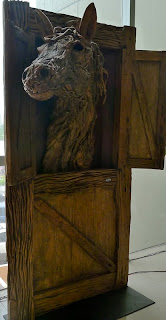Sustainable buildings and Permeable Pavements
We often equate progress with cement...
thus the statement that :
asenso na kay kongkreto na ug balay (a house is made of concrete),
nacemento na gyud ang agianan ( concreting of a pathway),
and we refer to this in developments of houses, churches or any building.
But what happens when we cement structures or pathways?
Simple: there is a blockage of the flow of air and water.
So, why do we do it?
Because we uncritically copy the dictates of foreign architecture and design.
And the result: very stuffy houses, no air ventilation in buildings
and our worst and ever present challenge in Cebu and most cities in the Philippines:
Flooding.
Flooding has three major causes:
weather:
heavy and extensive rainfall in a short period,
high tide during stormy conditions-
poor maintenance of infrastructures:
faulty sewage networks, poor & insufficient drainage,
inadequate maintenance of watercourses-
and development & planning issues related to
development in flood plains areas,
badly designed flood prevention infrastructures,
and building on land in a way that it prevents rain water from draining naturally.
So, what is the fuss about permeable pavers?
Permeable pavers manage runoff from paved surfaces,
ease the burden on the drainage systems
and allow groundwater recharge
through the natural draining of rain water back into the water table,
an added bonus is that it irrigates the trees in our urban green lungs.
At West Gorordo Hotel,
we originally installed a porous, permeable or pervious pavement
using open jointed blocks,
but the blocks could not handle the weight of the vehicles..
So, Joel Lee, our permaculture designer deviced a very simple solution--
to mimic the natural world before the application of cement:
by installing a gravel pavement with a meandering pathway...
and why meandering?
to demonstrate the flow of a river:
it meanders and hydrates the surrounding land before it flows into the seas.
So, when you walk by West Gorordo Hotel,
take a minute and observe a simple flood control solution,
which you can do at home or when making any land developments.
Walk on the meandering pathway
and experience the joy of what it is like to be a body of water
before it drains into the sea.
 |
| the permeable pavers (open jointed blocks) installed in 2007 sourced locally |
 |
| could not handle the weight of cars |
 |
had to be removed
Joel Lee driving the back hoe and digging the meandering pathway |
 |
| the replacement |
 |
| meandering cement path to contain the gravel road |
 |
| how the pathway was installed by using tin sheet mold |
 |
| after the cement was poured on the tin sheet mold |
 |
| the gravel (single sized aggregate) was poured after compacting the ground |
 |
| our new permeable and meandering pavement |



















































